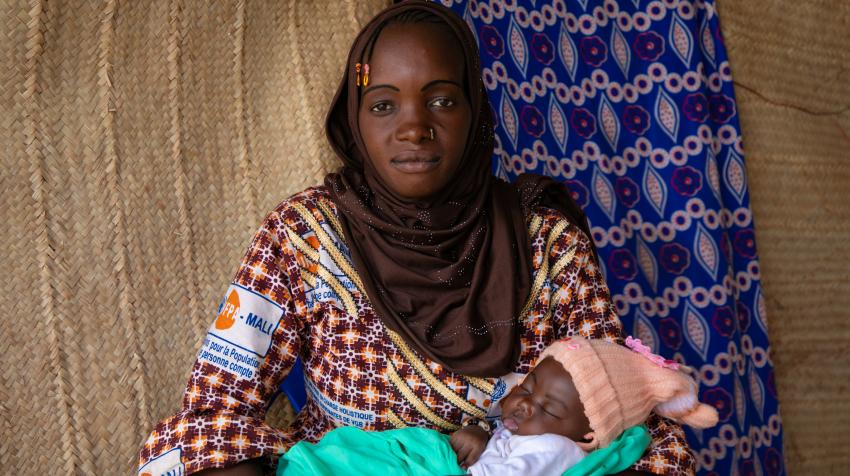June 2012, No. 1 & 2 Vol. XLIX, The Future We Want?
The 20 years following the original Rio conference in 1992 have not raised high hopes for the Rio process. Priorities have shifted back to business as usual, environmental goals, and the implementation of Agenda 21 are advancing too slowly, economic instabilities dominate the public discourse, and global climate negotiations are continually on the verge of collapse. However, we have not abandoned ship.
We are again going to Rio de Janeiro this year, and those of us who will be there—more than 110 Heads of State, negotiators, experts, and tens of thousands of civil society representatives—owe it to the rest of the world to deliver progress and restore the faith.
Sustainable development is more critical now than ever. We face increasing income inequalities within and between States. Over 1.4 billion people continue to live in extreme poverty while resource depletion and climate change impacts continue to threaten development.1 As former United Nations Secretary-General Kofi Annan said, we face increasing "problems without passports"—global challenges that can only be addressed through concerted action.2
Rio+20 does not aim to produce as much as its predecessor in terms of outcome texts, but it does aim to rejuvenate old promises. First and foremost, it aims to renew global commitment to sustainable development. As Rio+20's Secretary-General Sha Zukang frequently reminds, Rio+20 aims to be the "conference of implementation".3
The Global Sustainability Panel 4 argues that effective implementation requires a new political economy that incentivizes political will by rewarding long-term policymaking and incorporating benefits of action into macroeconomic management. United Nations Secretary-General Ban Ki-moon highlights the need for a "new economic paradigm that recognizes the parity between the three pillars of sustainable development".5 So how can we achieve this new modus operandi?
The key to unlocking this new system and reversing political will is an informed, active, and engaged civil society that is able to articulate its needs. Civil society must continue to clearly signal to governments and corporations that it wants a new, fair, and green economy with policies that ensure the prosperity of future generations. It must also play an active role in securing and sustaining this future.
A report from the United Nations Environment Programme (UNEP) Foresight Process involving 400 leading scientists and experts ranks rapid changes in human behaviour towards the environment as a top emerging issue.6 Policy and economic incentives can encourage sustainable consumption, but those incentives only arise through public awareness and public demand.
The World Federation of United Nations Associations (WFUNA) and its member United Nations Associations (UNAs) work to create an informed, active, and engaged civil society. WFUNA and its UNAs work at the grassroots level worldwide to effectively raise awareness in civil society and to contribute to the positive feedback loop of asking for policy changes that will encourage behavioural change.
Through live, online seminars from its New York office, WFUNA has contributed to closing the information gap by sharing expert information and updates on the negotiations with individuals in more than 45 countries.
From Australia to Zimbabwe, UNAs spark dialogue about sustainable futures envisioned in communities around the world. UNAs work to reconnect people to their environments through community clean-ups, tree planting, and sensitization campaigns in Ghana, São Tomé, and elsewhere. In Bulgaria, Canada, Cuba, and Denmark, Model UN debates on sustainability propel youth into the complexities of global decision making. The Melbourne Declaration, the product of public consultations by UNA-Australia, articulates a clear, people-and-planet-centric, vision for the future. Thousands around the world are learning to communicate their desire for a system that respects ecological limits and ensures human rights for all.
Coordinating a response requires an institution with global reach. On its list of 21 Issues for the 21st Century, the UNEP Foresight Process identified aligning governance to the challenges of global sustainability as the number one emerging issue.7 An increasing number of transboundary crises, such as climate change, approaching planetary boundaries, and a destabilizing international financial system challenge progress. Thomas G. Weiss, an expert in international diplomacy, maintains that tackling these problems requires "vigorous approaches and actions that are not unilateral, bilateral, or even multilateral, but rather global". The United Nations is the sole organization capable of shouldering this responsibility.8 It is for this reason that WFUNA actively advocates for stronger, more effective global governance through media, public dialogue, and expert-level debate.
If civil society is to be instrumental in the implementation of promises made in Rio, major groups and civil society organizations (CSOs) must be better integrated into international decision making structures. Thousands of individuals now participate in and observe major environmental summits. Yet, while the engagement of CSOs has continued to expand since 1992, more openness will ensure better global collaboration among all stakeholders, both public and private, to achieve sustainable development.
At a meeting between Member States and major groups in March, the European Union asked for a longer dialogue period. However, to take this encouraging request further, why not grant major groups speaking rights in the negotiations? There are successful examples of deepening CSO involvement in global decision making. The Food and Agriculture Organization Committee on Food Security was initiated by civil society and involved civil society in deliberations on an equal playing field with Governments. The Friends of the Chair mechanism in the Convention on Biological Diversity incorporated civil society in Convention processes. If the Rio+20 negotiations deliver the much needed United Nations Environmental Organization, civil society could be granted an equal seat through a voting structure similar to the International Labour Organization. After all, civil society does not only express the interests of often overlooked peoples, it also brings important technical capacity and local knowledge.
In the absence of real action, the challenges we confront will only be compounded as the world population reaches nine billion by 2050 and the demand for resources increases exponentially.9 The Global Sustainability Panel reminds us that by 2030, the world will need at least 50 per cent more food, 45 per cent more energy, and 30 per cent more water—all at a time when environmental boundaries are throwing up new limits to supply.10
The world needs delivery on past promises. This is a task for all actors involved—those meeting in Rio in June, authorities at all levels, and global civil society. We are on this planet together, and we can only move forward as a team.
Notes
1 United Nations Secretary-General's High-level Panel on Global Sustainability (2012). Resilient people, resilient planet: A future worth choosing, overview. New York: United Nations
2 Kofi Annan, "Problems without Passports, "Foreign Policy 1 Sept.2002. Retrieved: http://www.foreignpolicy.com/articles/2002/09/01/problems_without_passports
3 United Nations, Under-Secretary-General Sha Zukang, "Closing Remarks by Mr. Sha Zukang Under-Secretary-General for Economic and Social Affairs, Secretary-General of the 2012 UN Conference on Sustainable Development (Rio+20)," 3rd intersessional meeting for Rio+20, New York: 27 March, 2012. Retrieved: http://www.uncsd2012.org/rio20/content/documents/751Closing%20Remarks_ intersessionals_27march_for%20posting.pdf
4 United Nations Secretary-General's High-level Panel on Global Sustainability (2012).
5 "Ban: New economic paradigm needed, including social and environmental progress," UN News Centre. 2 April.2012. Retrieved: http://www.un.org/apps/news/story.asp?newsid=41685
6 UNEP (2012). 21 issues for the 21st Century: Result of the UNEP Foresight Process on Emerging Environmental issues. Alcamo, J., Leonard, S.A. (Eds.).United Nations Environment Programme (UNEP), Nairobi, Kenya, 56 pp.
7 Ibid.
8 Thomas Weiss, "Can We Fix the United Nations?" Acronym,Vol.1, no.1.World Federation of United Nations Associations. New York: Spring 2012.
9 United Nations, Department of Economic and Social Affairs, Population Division (2011). World Population Prospects: The2010 Revision, Press Release (3 May 2011): "World Population to reach 10 billion by 2100 if Fertility in all Countries Converges to Replacement level".
10 United Nations Secretary-General's High-level Panel on Global Sustainability (2012).
The UN Chronicle is not an official record. It is privileged to host senior United Nations officials as well as distinguished contributors from outside the United Nations system whose views are not necessarily those of the United Nations. Similarly, the boundaries and names shown, and the designations used, in maps or articles do not necessarily imply endorsement or acceptance by the United Nations.




